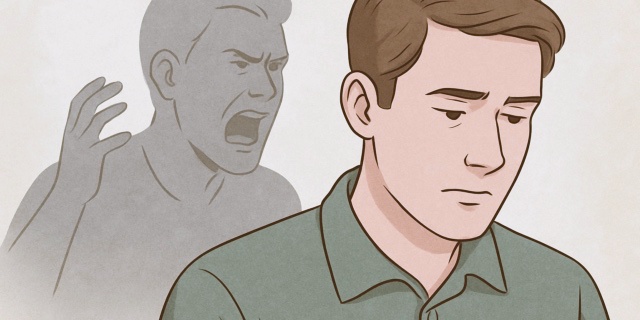
Passive-aggressive personality disorder is something most of us encounter in subtle forms—whether we've displayed it ourselves or experienced it through others. But when passive-aggressive behavior becomes a consistent part of someone's personality, it's a serious warning sign. Being in close contact with someone exhibiting this behavior can significantly affect your emotional well-being. So, how can you recognize passive-aggressive personality disorder? Below are 7 revealing signs to help you spot it early.
SEE ALSO: How to Stop Caring About What Others Think (5 Helpful Tips)
What Is Passive-Aggressive Personality Disorder?

It’s important to note that passive-aggressive personality disorder is not officially classified as a mental health diagnosis, but rather a recurring behavioral pattern. People with this tendency often respond to situations in an indirect and emotionally harmful manner, rather than addressing problems head-on.
SEE ALSO: What to Do When You Feel Unmotivated (3 Practical Tips)
Research highlights that early family dynamics and childhood experiences are frequently behind the development of such behaviors. Despite its frequency, passive-aggressive behavior remains under-studied in the mental health field.
SEE ALSO: 5 Powerful Steps to Free Yourself from Worry
These individuals are typically experts at denial. When confronted, they become defensive rather than reflective. Let’s examine some of the most common signs.
1) Stubbornness Disguised as Resistance
Passive-aggressive individuals are often uncooperative, irritable, and even subtly hostile. You’ll rarely find them in a genuinely good mood. While it's normal to have occasional bad days, these people make such moods part of their routine.
SEE ALSO: How to Take Action: 11 Habits That Turn Dreams into Reality
Instead of expressing disapproval directly, they may sulk, procrastinate, or subtly resist. What they say and what they do often contradict each other.
2) They Hold Grudges
We all feel hurt sometimes—like when we’re excluded from plans. But most people forgive and move on. Passive-aggressive individuals, however, hold onto resentment indefinitely.
SEE ALSO: What Should You Do to Change Your Life? (5 Powerful Tips)
They might avoid future invitations or even cut ties completely, regardless of the context or explanation behind the initial event.
3) The Silent Treatment as Punishment
When they feel wronged, passive-aggressive individuals avoid communication. Instead of sharing their thoughts or frustrations, they shut down.
SEE ALSO: 3 Powerful Things You Can Do Today to Boost Your Self-Confidence
Imagine a husband upset because his wife went shopping instead of paying a bill. Rather than discussing it, he stops speaking to her altogether for days. Unable to express his emotions constructively, he resorts to silence as a means of control.
4) They Are Unreliable
People with passive-aggressive tendencies often avoid responsibilities. In the workplace, they miss deadlines, blame others, and resist schedules. Chronic lateness and a flood of excuses are common.
SEE ALSO: How to Cope with Anxiety: 5 Practical Steps
Though they might seem careless or lazy, these habits often reflect deeper emotional or personality issues left unaddressed.
5) Backhanded Compliments
Passive-aggressive behavior often overlaps with narcissistic traits. These individuals deliver compliments that sound supportive but are actually veiled insults.
SEE ALSO: Your Guide to Healing: What You Should Know About Overcoming Depression
For example: “I never imagined you’d succeed, but congrats on the house!” These subtle put-downs can wear down your self-esteem over time.
6) Insulting Through Sarcasm
Sarcasm is common in daily life, but passive-aggressive people weaponize it. Rather than being playful, their sarcasm masks bitterness.
SEE ALSO: How to Stay Present in Everyday Life: 5 Simple Habits
They choose mocking and irony over open dialogue, using humor to convey disapproval without addressing the real issue.
7) Intense Jealousy
These individuals often feel overshadowed by others' success. To feel superior, they might undermine you in subtle or even destructive ways.
SEE ALSO: How to Be More Optimistic: A 3-Habit Transformation
For instance, if you’re happily married and they have romantic feelings toward you, they may spread harmful rumors to disrupt your relationship. Their envy can push them to manipulate situations for personal gain.
In this article, we provided a comprehensive look into how to recognize passive-aggressive personality disorder and identify the key behaviors associated with it. Understanding these warning signs is a crucial step in protecting your mental and emotional well-being. Recognizing passive-aggressive personality disorder early allows you to set boundaries and navigate relationships more wisely.